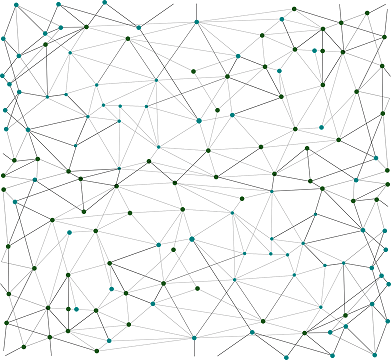The past few years have revolutionized how we perform in the workplace and our personal lives. Limitless disruptions, disruptive innovations, and the shift to virtual, remote, or hybrid work models make it increasingly challenging for entrepreneurs and project managers to track their team members’ time.
Although it’s pretty elementary to manage your time effectively, this doesn’t necessarily mean you will do just as well with your team involved. Instead, it demands a different mentality and approach. Bringing out the best in your team will ensure the maturation of your venture.
Team time management highlights the organizational rhythm that focuses on working together instead of performing as individuals. While we can’t overlook the essence of leveraging an individual’s talent and craftsmanship, it’s best to enlarge their perception. That is, to use everyone’s time to the best advantage.
This post gleans vital insights on how to improve your team’s efficiency in 2022 with time management.
Communication is key
Distinctly communicate your intentions and goals to your team members. Poor communication has detrimental effects on the effectiveness of an organization. The more you talk to your team, and importantly, communicating effectively ensures you develop sustainable schedules and plans. Also, you successfully handle projects through delegation and teamwork.
Moreover, explaining plainly to your colleagues what you expect from them, exchanging ideas, answering queries, and providing feedback results in better understanding. People who know what to do save time and create an amicable and supportive atmosphere at the workplace.
Use a time tracking software
Time-tracking software is crucial to productivity, insight, a healthy workflow, and, in sum, creates a life-changing approach to enhancing employees’ experience and efficiency. As the name gives it away, time-tracking software allows employees to record time spent on tasks or projects. Consequently, project managers can understand how their team utilizes their time, which tasks are taking what time, and, importantly, how to unearth time wastage in the organization.
An ideal time-tracking tool should be fully customizable. It should offer proprietary features to suit your firm’s or project’s operation. In addition, it should provide a suite of project management and team collaboration features that give real-time inputs about ongoing operations.
In sum, the right time-tracking will significantly boost efficiency, motivation, and productive focus in your workplace. Nevertheless, depending only on the right time tool to solve every problem and improve your team’s efficiency is a futile endeavor. Yes, time-tracking software provides immense support, but it’s best to have the set of skills and appropriate resource allocation.
Refrain from tedious tasks
The ever-evolving technological perks can automate various tasks, raising productivity and efficiency. But, unfortunately, some firms let their employees perform mundane tasks that lead to boredom, resulting in a negative attitude, clumsiness, and, eventually, poor productivity.
Even worse, it can lead to high turnover rates and your venture losing top talent simply because they are always performing menial, unimportant, or repetitive tasks.
Thus, it’s vital to leverage technology to handle repetitive tasks and let your team members engage in other high-priority tasks.
Cut off distractions
Distractions at the workplace can cost you many valuable hours. Unfortunately, ensuring your colleagues remain focused while working isn’t easy. Mobile phones, gossip, smoking, and social media are the most common aspects that negatively impact productivity.
It’s important to understand the ramifications of distracted employees and put in place policies and procedures to curb the problem. For instance, setting lunch and break times or blocking certain websites allows you to get the work done efficiently.
Still, don’t go overboard to the extent of fixating your team members on their work. Instead, allow them to take reasonable breaks from work and re-energize to be more productive.
Reduce impromptu meetings
Too many meetings tend to be draining and waste an organization’s time and resources. Calling hasty meetings that involve too many people and yield little outcome can throw your teams’ time management off balance.
As a result, it would be best to ensure that a meeting has a defined purpose, so you can have an agenda and a clear objective to run an efficient meeting.
You might consider the following practices to know when and how to hold a meeting:
- Eliminate feedback meetings by communicating through other means such as email, sending surveys, or using reports.
- Only meet when there is an agenda. Having clear agendas for every meeting makes the meetings more productive and helps decide whether to hold a meeting.
- Hold meetings after reaching specific feats or deadlines.
- Streamline the conversation and keep the meetings short.
Provide flexibility to team members
Fostering flexibility in your workplace is an ideal strategy for retaining and engaging employees. In addition, it helps an organization attain its objectives, thanks to improved productivity. It is an essential tool in problem-solving, too.
Workplace flexibility means the ability to adapt to prevailing circumstances quickly. For instance, and as already outlined, the past two years have brought a few changes in the workplace. Due to Covid-19, juggling between home and office work is quite overwhelming. The conventional nine-to-five limits workers from achieving a desirable work-life balance, which affects their productivity and mental well-being.
Therefore, giving your employees more freedom to organize their time is essential to enhancing their satisfaction and morale. This, in turn, improves your team efficiency.
And this goes beyond just working in a remote or hybrid model. Workplace flexibility encompasses several working arrangements, including paid time off, caregiving leave, flexible arrival and departure time, choice, and control in work shifts.
Final thought
Constructive time management will go a long way in positively impacting your team’s efficiency and play a critical role in a company’s success. They will help you meet deadlines, simplify your goals, gain ultimate control of the key priorities and help your team become more focused and productive.












